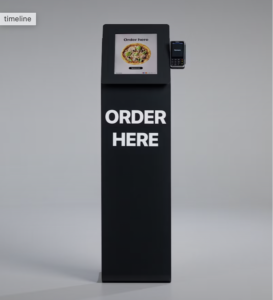The other morning, I overheard the following exchange. Besides breaking my heart, it reminded me of the profound possibilities that relationships offer—for connection and also for pain.
The exchange:
Woman: I am really struggling with this presentation. I feel so burdened by it, like I have to cover every topic, and there are too many and I don’t know what to include. I’m overwhelmed and just don’t know how to do it.
Man: Why don’t you not prepare at all; let it happen organically. Just show up, trust that you know the material, which you do.
Woman: I don’t know how to do that. I need to have something to say to the 100 people that will be sitting there. They’re expecting a workshop.
Man: Why not just let people ask questions and let your audience’s curiosity be what guides you and the material you offer?
Woman (having an “aha” moment and becoming tearful): That’s it exactly. I don’t trust that anyone will or can help me; I don’t trust that anyone will take care of me, I feel like I have to do everything myself, create the whole thing in isolation. The idea that someone else could ask a good question that would help focus the material brings tears to my eyes.
Man: Exactly. So you’re a control freak.
Woman (closing her eyes, taking a deep breath and visibly gathering herself): When you call me that, it’s not helpful and actually it’s hurtful. What I need is for you to just support me—to hear the part of me that’s in pain, right now.
Man: So now you’re controlling the way I’m supposed to respond to you, how I’m supposed to be your therapist. It’s just what I said, you’re a control freak.
This sort of interaction happens far too frequently in intimate relationships. What started out as an open, safe, connected and potentially healing communication, turns into something hurtful, dangerous, and alienating.
The woman in this case was suffering and struggling to express her pain. She was trying hard to understand why her presentation was so difficult for her and to find some relief. And then something beautiful happened: she awakened to her deeper felt sense, and to what the real issue was. She could see her own fear and distrust, and the underlying beliefs that were imprisoning her and causing her to over-manage the situation and feel so stressed. It was evident that she felt great compassion for herself in that “aha” moment, in the newfound understanding of her own experience.
As a result of the first part of their dialogue, she got to live the profound relaxation and relief that occurs when we get clear on what is happening inside us, and discover the deep seated belief that is driving us. When we awaken to our own truth, to that which has been hidden from ourselves, and we do it with another person—it is a beautiful thing. When we go through such a process with our partner, there exists the possibility (and probability) for profound love, connection, and gratitude. There was so much good that happened in that first part of their dialogue.
Sadly, though, at precisely that moment of grace, when she opened to her truth, her partner entered that beautiful space with criticism, and used her pain as an opportunity to judge her.
What was remarkable however, and a testament to the human spirit, was how, despite being visibly hurt, she managed to keep her heart open, and to continue trying to get what she really needed. I must say too, that I could not help but empathize with that part of her that didn’t trust she could rely on anyone to truly help her. The very thing she feared was happening as she was naming it; she was begging for his help, for this vulnerable and wounded part of herself to be taken care of and understood. But in place of that help, she was receiving judgment.
It was also quite sad to notice that her partner seemed to genuinely want to help her, to encourage her to relax, but was unable to skillfully express that intention. He refused the opportunity to empathize with or comfort her vulnerability. His suggestions were on target, but they came from the wrong side of the emotional fence. His input was focused on obliterating the behavior that arose out of her distrust (and suffering), rather than taking care of the suffering itself.
What he wanted was, seemingly, the same thing she wanted, for her to feel like she could loosen her controls, feel less stuck and enjoy the process more. But the way he sought to accomplish that intention was to criticize her not-yet-awakened behavior and label her not-yet-perfected character, which didn’t help her (as she feared) and in truth, doesn’t help anyone.
Exposing our vulnerabilities and less evolved parts is scary and hard, and when we do have the courage to bring our challenges to the light, we want them to enter a safe space and be met with kindness. The great hope and potential of partnership is to provide this safe and curious space, where our less evolved parts can be understood for the fear and hurt that motivates them rather than being used to judge us for the kind of person they prove us to be.
It is not until the parts of us that are afraid, confused and weak are understood and supported that they have the space to relax, and ultimately, heal.
Every moment, every conversation, every interaction presents a choice: we can take the path of empathy or the path of judgment. We can relate to the vulnerability in another with a sense of curiosity and compassion, or, we can relate with criticism and judgment. In truth however, it not only feels better to receive kindness and support for our not yet perfected parts, but also to offer it. Try it out for a day: be mindful of your moment to moment choices between empathy and judgment—not just for others but for yourself as well. Try seeing from and through the vulnerability parts of yourself and others, and notice where it takes you, inside and out.


